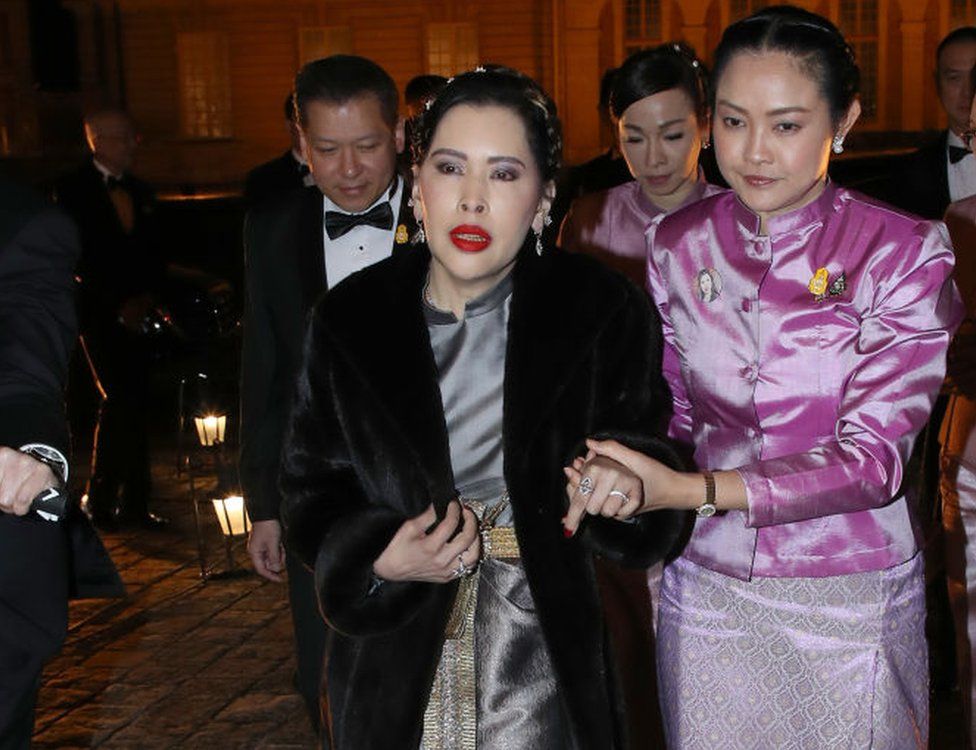Bussiness
Thai army boycotts e-commerce giant Lazada over video

Thailand’s army has boycotted online retailer Lazada over an advert that the government is probing for allegedly insulting the country’s royal family.
The move will see 245,000 members of the Thai military banned from using the e-commerce giant’s websites for official purposes.
Thailand has strict laws over defaming, insulting or threatening senior members of the royal family.
Singapore-based Lazada is one of South East Asia’s biggest online retailers.
The announcement comes after citizens loyal to the king complained about a TikTok video promoting a Lazada sale on 5 May.
Royalists said the advert, which featured a woman in a wheelchair, mocked the younger sister of King Vajiralongkorn, Princess Chulabhorn, who uses a wheelchair as a result of Lupus, an autoimmune disease.

The video was “offensive to the monarchy” and “caused disunity in Thai society,” Thai army spokeswoman Colonel Sirichan Ngathong said in a statement.
“The army now has a policy to ban all army units and army-related activities from ordering merchandise from Lazada platform or delivering things from Lazada,” she added.
Thailand’s digital economy minister Chaiwut Thanakamanusorn told reporters that the government was considering legal action against the influencer and the advertising agency responsible for the video, as well as Lazada.
Under Thailand’s lese-majeste law courts can hand down jail terms of up to 15 years for each offence of defaming, insulting or threatening King Maha Vajiralongkorn, the queen, their heir or regent.
Lazada, which is the South East Asian unit of Chinese online retail group Alibaba, did not immediately respond to a request for comment from the BBC.
Earlier the company apologised for the “emotional damage” caused by the video and said it should have been more careful.
At least half a dozen businesses in Thailand, including some run by the palace, have also suspended use of Lazada because of the video, according to the Reuters news agency.
Source:bbc
Bussiness
Ghana’s GDP shows economy is fast recovering despite DDEP – Finance Ministry

Ghana’s Gross Domestic Product (GDP) indicates a rapid economic recovery despite global challenges and ongoing debt restructuring, according to the Ministry of Finance (MoF).
The Ministry in a statement today indicated that latest data from the Ghana Statistical Service (GSS), cumulative economic growth for the second quarter (Q2) of 2024 reached 6.9%, a notable increase from the 4.7% recorded in the first quarter of 2024.
The MoF statement further noted that, “The economy’s robust recovery is in response to the macroeconomic stability and growth interventions that government is pursuing under our IMF-supported Post Covid-19 Programme for Economic Growth (PC-PEG).”
According to them, the overall real GDP growth for the first half of 2024 rebounded strongly, with year-on-year GDP growth averaging 5.8% for the period, significantly higher than the 2.9% recorded in the same period in 2023.
By Edem Mensah-Tsotorme
Read full statement below


Bussiness
Facebook, Youtube, online trading companies must be taxed – Deputy Finance Minister

The Deputy Finance Minister Dr Alex Ampaabeng, has proposed that online trading companies should be taxed to bolster the economy.
He noted that these companies, both local and international, generate significant revenue from their Ghanaian clients, which underscores the necessity for taxation.
In an interview with Bernard Avle on Channel One TV’s The Point of View, Dr Ampaabeng pointed out various potential revenue sources for Ghana, including online businesses and content creation companies.
He questioned why other national companies operating in Ghana are taxed, but social media platforms like Youtube and Facebook, which run numerous advertisements, are not included in the Ghanaian tax system.
According to him, these social media companies earn profits from the advertisements they display, and online trading companies also generate income from the sale of their products and services.
He mentioned online trading companies such as Jiji, Jumia, and Tonaton, which he believes surpass all physical marketplaces in Ghana in size.
According to him, “I can’t think of a country which has not gotten a digital service tax system of some sort, so Ghana is long overdue. Just to make an example so that people will appreciate where I’m coming from. Go to Youtube and play a video, within one or two minutes, you are going to watch about two, or three adverts.”
“What it tells you is that Facebook or Youtube is making profits right here in Ghana. Go to your Facebook account, and you are going to see a number of adverts on your right, left. What it is telling you is that Facebook is making profits right here in Ghana and not being taxed. Meanwhile, there are companies operating in Ghana, for jurisdiction reasons, of course, that are being taxed,” he said.
The Deputy Minister added that “So then, it comes to the question of the application of our tax laws. Revenues generated in Ghana are subject to taxes. We have Facebook, TikTok and all those players, these are digital platform owners.”
He stressed, “Then we have the digital or market players, here we are talking about individuals who are using the digital platforms. We have Jiji, Jumia, Tonaton, these combined, are bigger than all physical marketplaces in Ghana. And it tells you the volume of transactions, that are going on there.”
He expressed his hope that individuals earning online profits from Ghanaian residents would be taxed.
“There are conversations ongoing, I wouldn’t want to pre-empt anything, maybe in the future, it might not be anytime soon, what I would like to see, is a Ghana where people who are earning all forms of profits in the country are subject to taxes. People who are trading online to Ghanaian residents, people who are generating revenue from Ghana are allowed to pay taxes,” he noted.
Additionally, he proposed a collaboration with the government to curb cybercrime by registering and verifying these online trading companies.
“We can have a system where the government engages these operators, so individuals will submit their Ghana Card and are registered and verified,”he concluded.
Source: Citinewsroom.com







